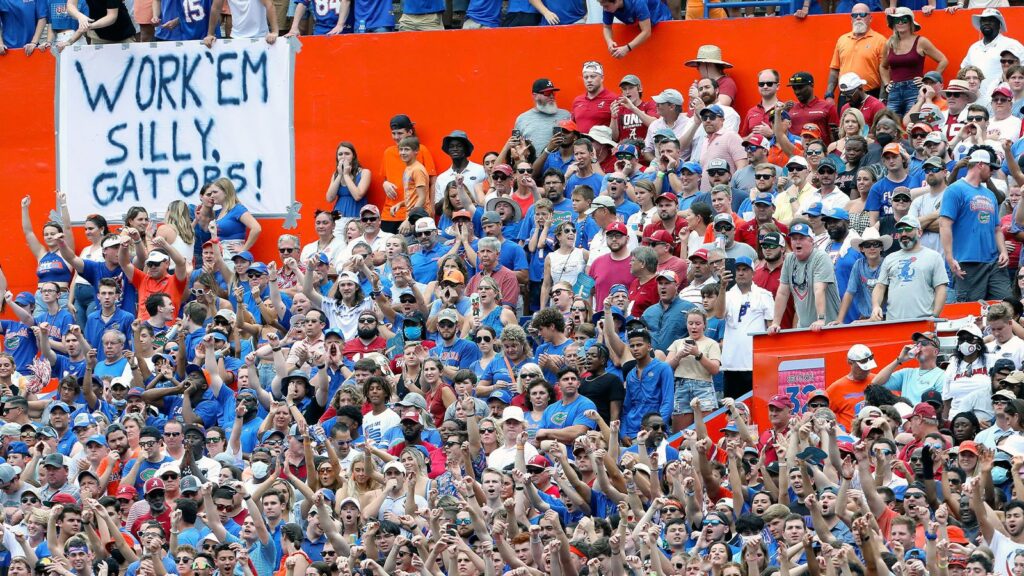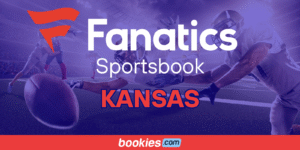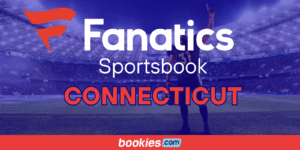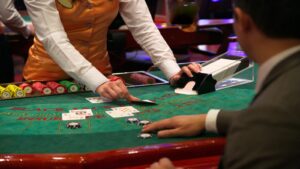Florida Sports Betting, Gaming Compact Thrown Out By Federal Judge

Must be 21+ to participate (18+ in KY). Gambling problem? Call 1-800-GAMBLER (CO, IL, IA, KY, KS, LA, MD, MO, NC, NJ, OH, PA, TN, VA). Call 1-800-NEXT-STEP (AZ). Call 1-800-9-WITH-IT (IN). CALL 1-877-770-STOP (LA). Must be present in LA (select parishes). Licensee partner Amelia Belle Casino. Minimum $10 deposit required. Minimum odds -500 or greater. Bonus Bets wager excluded from returns. New customers only. T&Cs, time limits and exclusions apply.
A federal judge on Monday threw out the new gaming compact between Florida and the Seminole Tribe, ruling that it violated the Indian Gaming Regulatory Act. The decision, which will undoubtedly be appealed, means no Florida sports betting – not online or in person, as it nixes gaming expansion for the Tribe.
The legality of the gaming compact between the State of the Florida and the Seminole Tribe that allows online sports betting in Florida was challenged in a pair of lawsuits.
In her ruling, U.S. District Court Judge Dabney Friedrich in the District Court for the District of Columbia sided with two groups of plaintiffs, who were suing the Department of Interior, U.S. Secretary of the Interior Deb Haaland and Florida Gov. Ron DeSantis. The plaintiffs argued that the gaming compact, which brought mobile sports betting to Florida, violated federal and state law.
"Although the Compact 'deem[s]' all sports betting to occur at the location of the Tribe’s 'sports book(s)' and supporting servers, this Court cannot accept that fiction," the judge wrote. "When a federal statute authorizes an activity only at specific locations, parties may not evade that limitation by 'deeming' their activity to occur where it, as a factual matter, does not."
Friedrich heard arguments in the Florida gaming compact case during a somewhat-raucous, 105-minute hearing on Nov. 9. She subsequently demanded attorneys representing the Department of Interior submit written responses to the claims made in each lawsuit. Attorneys representing government wanted the cases simply dismissed on lack of standing.
The Seminole Tribe of Florida discreetly launched its Hard Rock Sportsbook betting app on Nov. 1 but has yet to offer any major advertising campaigns to support it. Legal mobile sports wagering has been underway in Florida since. The launch of the app ended months of speculation over when betting would commence in Florida. Sports betting in Florida operates through a “hub and spoke” system. The servers processing the wagers are located on Indian land but bettors can be located anywhere in the state. That approach has been at the core of much opposition to the compact which allows it.
Attorneys representing West Flagler Associates, which owns Magic City Casino in Miami and Bonita Springs Poker Room, claimed their clients suffered harm from the implementation of sports betting in Florida. The other lawsuit was filed by a group that represents, in part, the “No Casinos” campaign that helped to get Florida’s Amendment 3 passed in 2018. Amendment 3 bans the expansion of gambling in Florida off Indian lands without 60% voter approval. That suit alleged the Florida compact allowing sports betting is illegal under the Indian Gaming Act, an argument the judge agreed with.
A third lawsuit challenging the Tribe and the state was dismissed by a federal judge in Tallahassee, Florida three weeks ago. West Flagler Associates sought to stop the sports betting part of the compact, claiming the “hub and spoke” approach is violation of the Indian Gaming Regulatory Act. U.S. District Court Judge Allen Winsor ruled in that case the plaintiffs lacked standing to sue the state because they could not demonstrate how the state’s approval of the compact caused them harm.
Sports Betting Had Been Underway In Florida
Sports betting had been legal in Florida since Oct. 15. Bettors over 21 located in Florida could wager on pro and college sports using the app, which is available through Google Play and the Apple Store. The Tribe has a monopoly on betting in the state, and the app was the only game in town statewide. There had been some issues with bettors getting paid quickly following their wins, but the site has generally worked without major issues.
The gaming compact was approved by a special session of the Florida legislature in the spring. It was then signed by a representative of the Seminole Tribe and Florida Gov. Ron DeSantis. The compact, which grants the Tribe a monopoly hold on sports betting in the Sunshine State, initially was allowed to go into effect after the Department of Interior refused to block it over the summer, allowing a 45-day review period to lapse without comment.
Florida has 22.4 million people, which makes it No. 3 in the nation behind California and Texas. Two weeks ago, the Seminole Tribe announced a deal that would allow five parimutuel facilities within the start to market sports betting. That provision was part of the compact, which guaranteed the state $500 million in annual revenue for the next five years.
The Tribe was expected to add more approved current parimutuel license holders who can also take bets. Those sites would have their own online betting apps managed by outside operators, and the Tribe would get 40% of all their net revenues. That's on hold for now.
LOOKING AHEAD: NFL Week 12 Odds
2022 Ballot Push Faces Long Odds
Meanwhile, DraftKings and FanDuel have poured more than $32 million into a drive to get a sports betting referendum on the 2022 Florida ballot, fronted by a group called Florida Education Champions. The group faces long odds to get its proposal in front of voters.
The amendment would initially allow those 21 and over to participate in Florida online sports betting on pro and collegiate events, but only from providers who have been legally licensed in at least 10 other states for at least one year, in addition to the Seminole Tribe.
The mission now is to land enough signatures to get the measure on the ballot. Petitions featuring the logos of both DK and FanDuel have landed in the mailboxes of registered Florida voters urging them to return a signed version of the pre-completed form.
As of its Oct. 31 filing with the Florida Division of Elections, Florida Education Champions had spent $16,227,053.66 of the $32,712,796 it received in contributions. Of those contributions, $22,712,500 came from FanDuel and $10 million was from DraftKings.
To get an initiative certified for the 2022 Florida ballot, 891,589 valid signatures are required. Those signatures must come from at least 14 of Florida’s 27 congressional districts. As of Friday, 111,711 signatures have been validated in support of the sports betting ballot item. There are 74 days remaining before the deadline for verification - Feb. 1, 2022. At this current pace, Florida Education Champions will need average 10,538 new validated signatures daily to reach its goal to get on the ballot.
TV ads clogged the airwaves during sporting events and newscasts across Florida both supporting and opposing the ballot bid. Ads backed by $10 million in funding by the Seminole Tribe demand voters “don’t to sign the gambling petitions” Those ads hit “out of state gambling companies” who would turn Florida into “another Las Vegas.”
Florida Education Champions responded with a TV ad of its own called “win-win,” urging registered voters in Florida to return their signed petitions.
The ads blasts the Tribe’s monopoly and touts the fact that money generated by the proposed amendment would be used for education. “Everyone loves a win-win, and if you’re a fan of sports betting, you can win-win, too!” declares a narrator standing in front of a school chalk board. “Billions of dollars for education. Legal sports betting for you!”
NFL CHAMPION: Super Bowl 56 Odds For All 32 NFL Teams
About the Author

Bill Speros is an award-winning journalist and editor whose career includes stops at USA Today Sports Network / Golfweek, Cox Media, ESPN, Orlando Sentinel and Denver Post.

 Fanatics Sportsbook Maryland Promo: Get Up to $1K in FanCash for CFP Fiesta Bowl (Jan. 8)
Fanatics Sportsbook Maryland Promo: Get Up to $1K in FanCash for CFP Fiesta Bowl (Jan. 8)  Top 5 Online Casinos: Real Money Casino Sites for US Players for January 8, 2026
Top 5 Online Casinos: Real Money Casino Sites for US Players for January 8, 2026  Fanatics Sportsbook Kansas Promo: Get $1,000 in FanCash for CFB Playoffs (Jan. 8)
Fanatics Sportsbook Kansas Promo: Get $1,000 in FanCash for CFB Playoffs (Jan. 8)  Fanatics Sportsbook CT Promo: Get Up to $1,000 in FanCash for CFP Fiesta Bowl (Jan. 7)
Fanatics Sportsbook CT Promo: Get Up to $1,000 in FanCash for CFP Fiesta Bowl (Jan. 7)  Top 10 Texas Online Casinos & Bonuses For January 2026 Rated
Top 10 Texas Online Casinos & Bonuses For January 2026 Rated  Michigan's Top Online Casino Promos & Bonuses January 2026: All New MI Casinos
Michigan's Top Online Casino Promos & Bonuses January 2026: All New MI Casinos
Comments